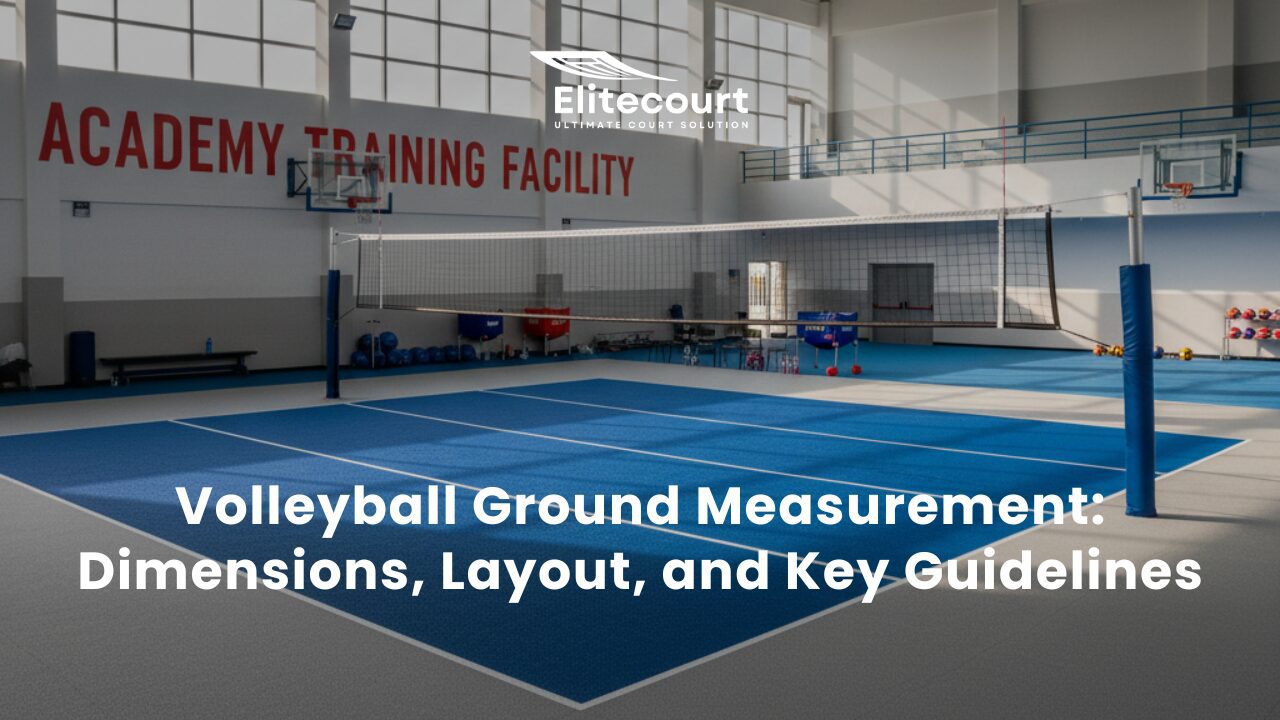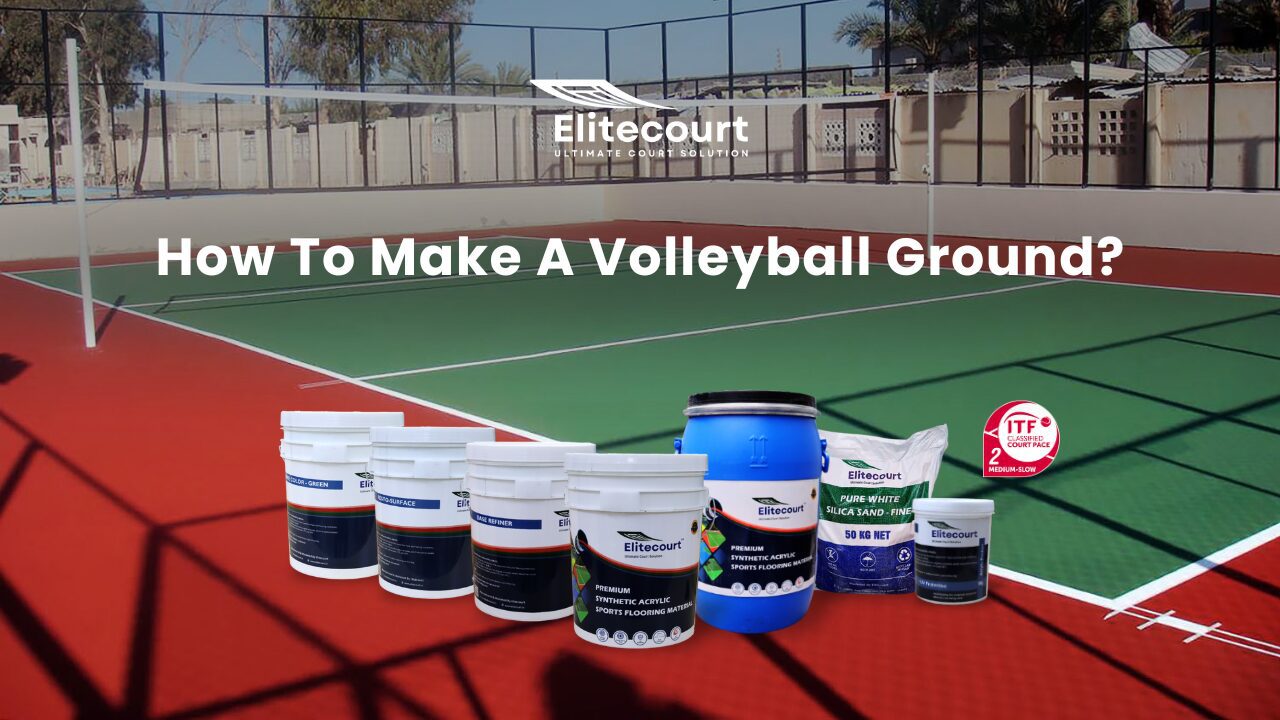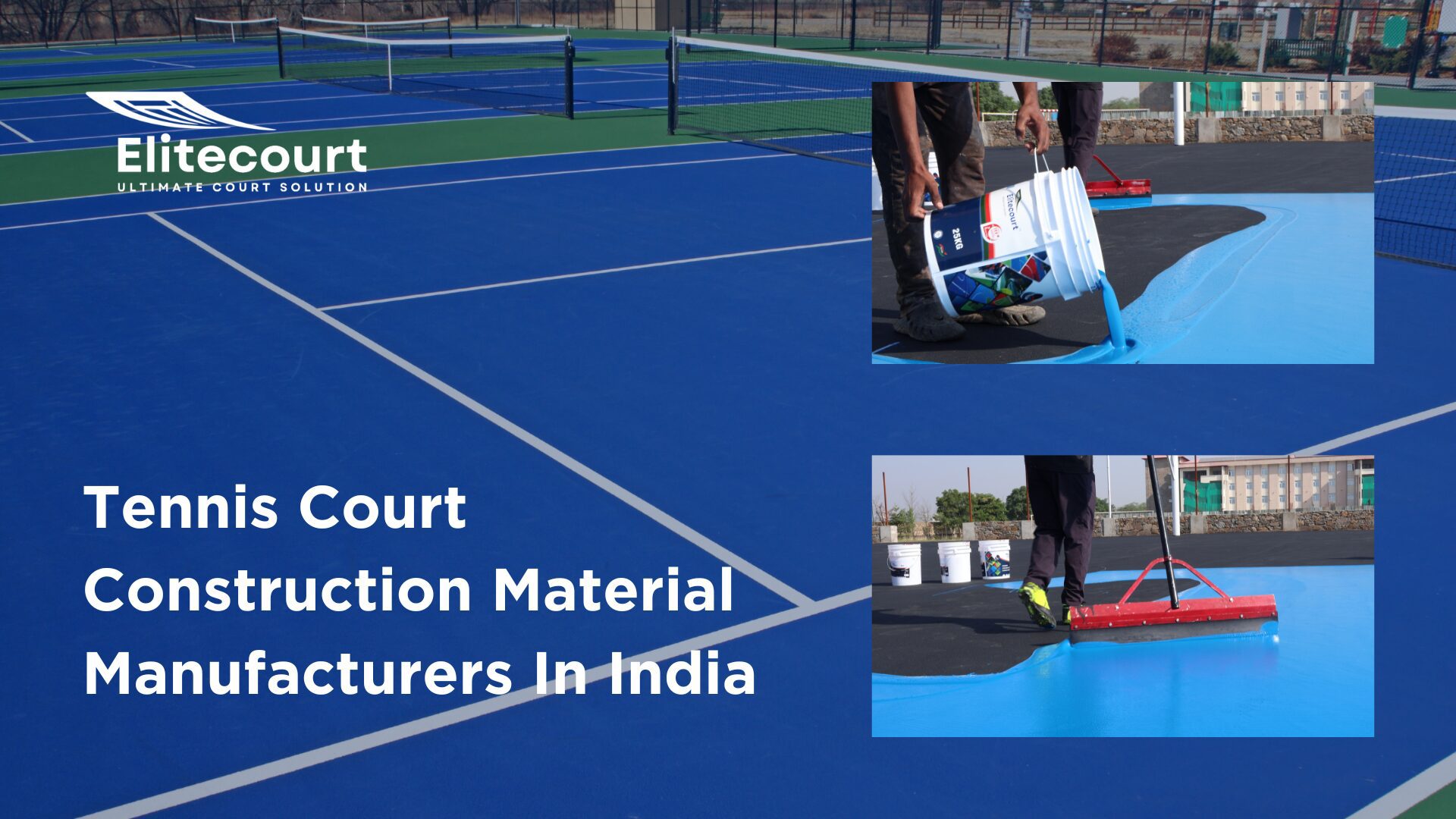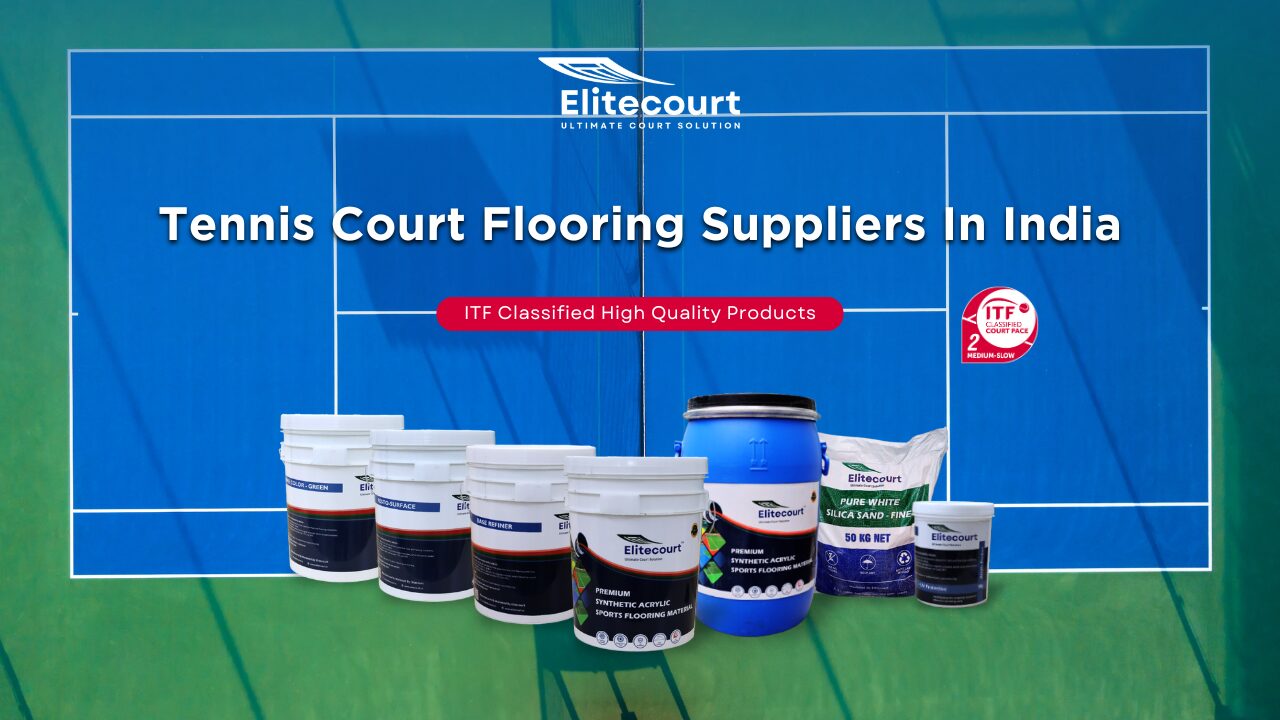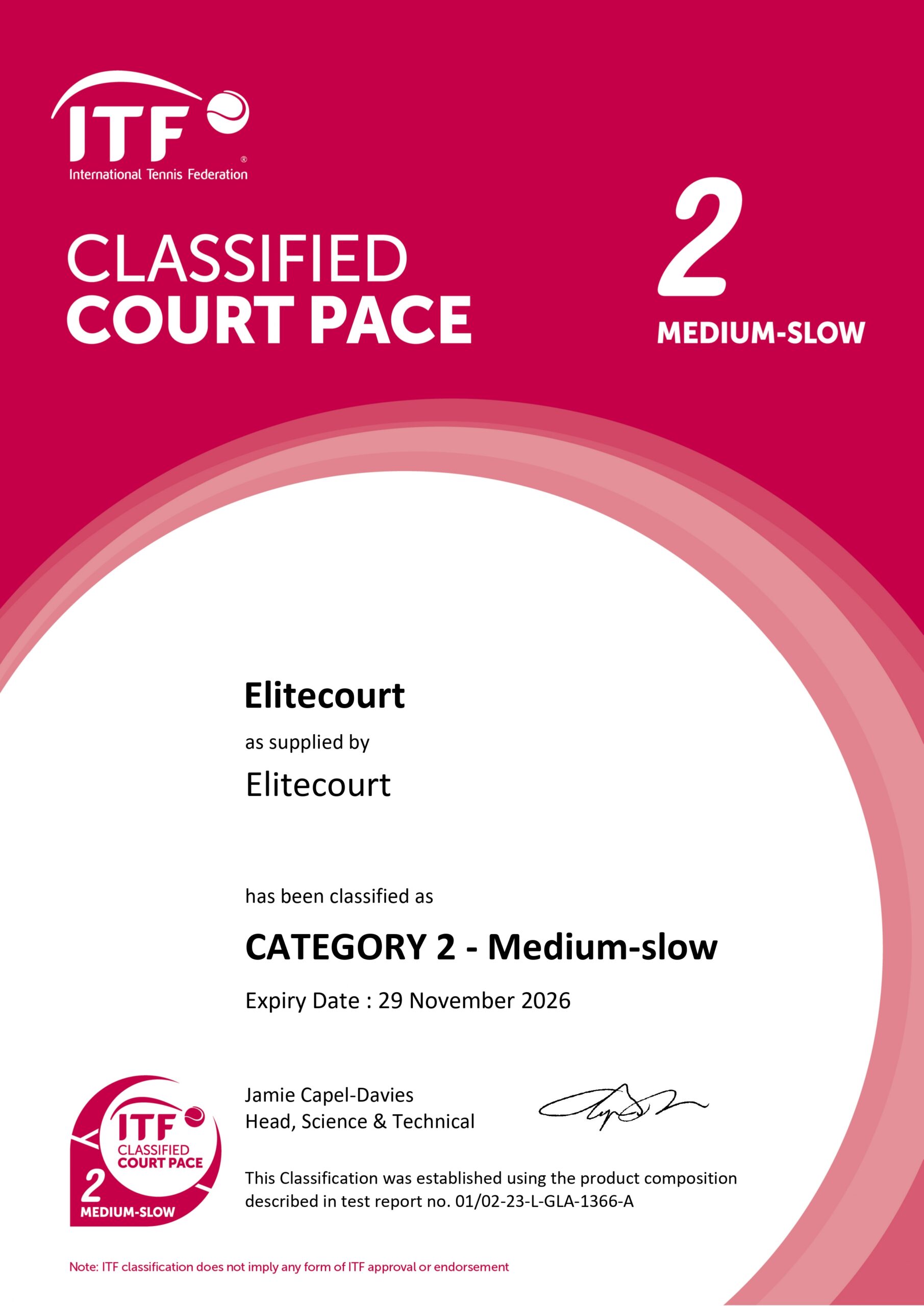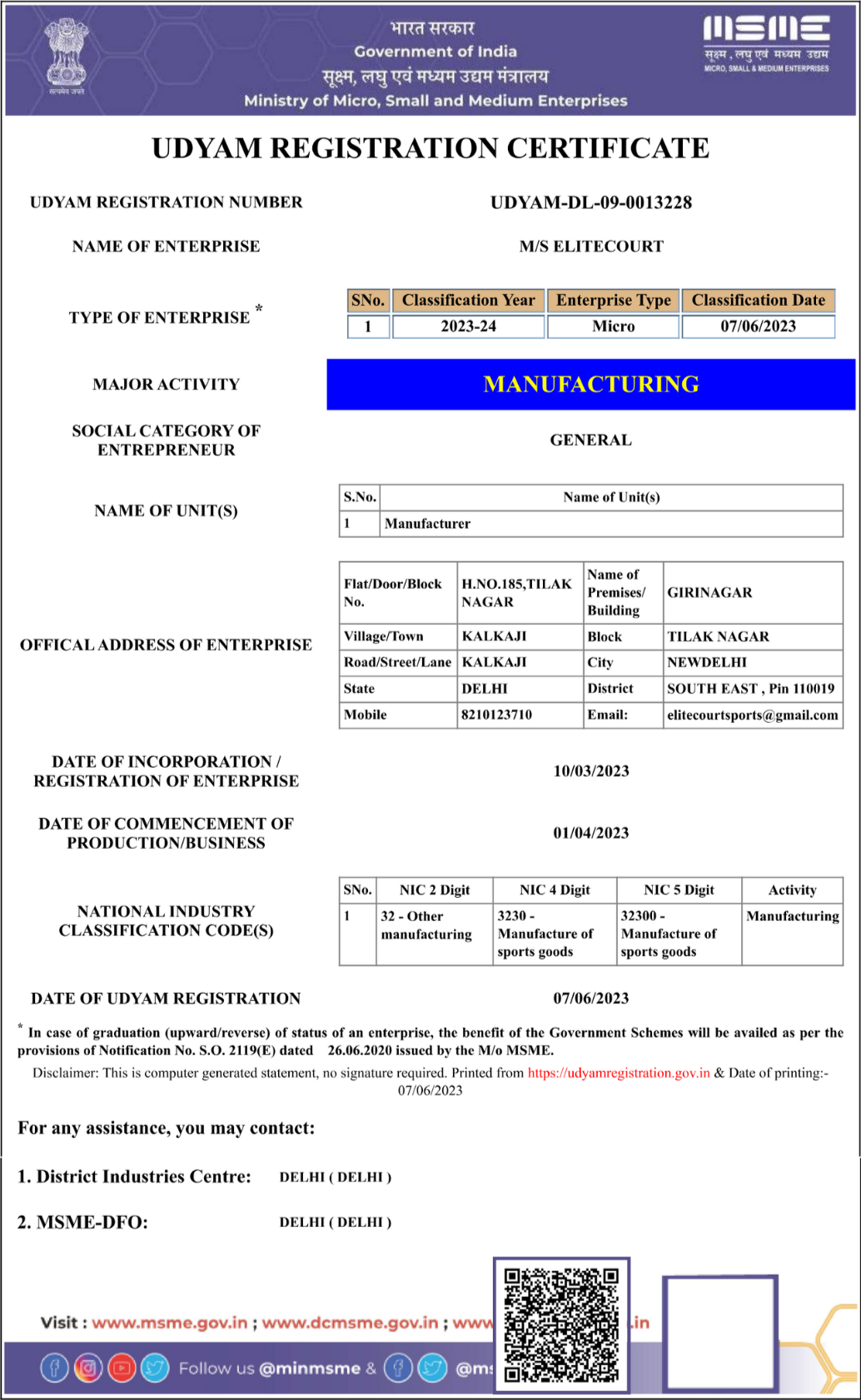Pickleball Court vs Tennis Court: A Comprehensive Comparison
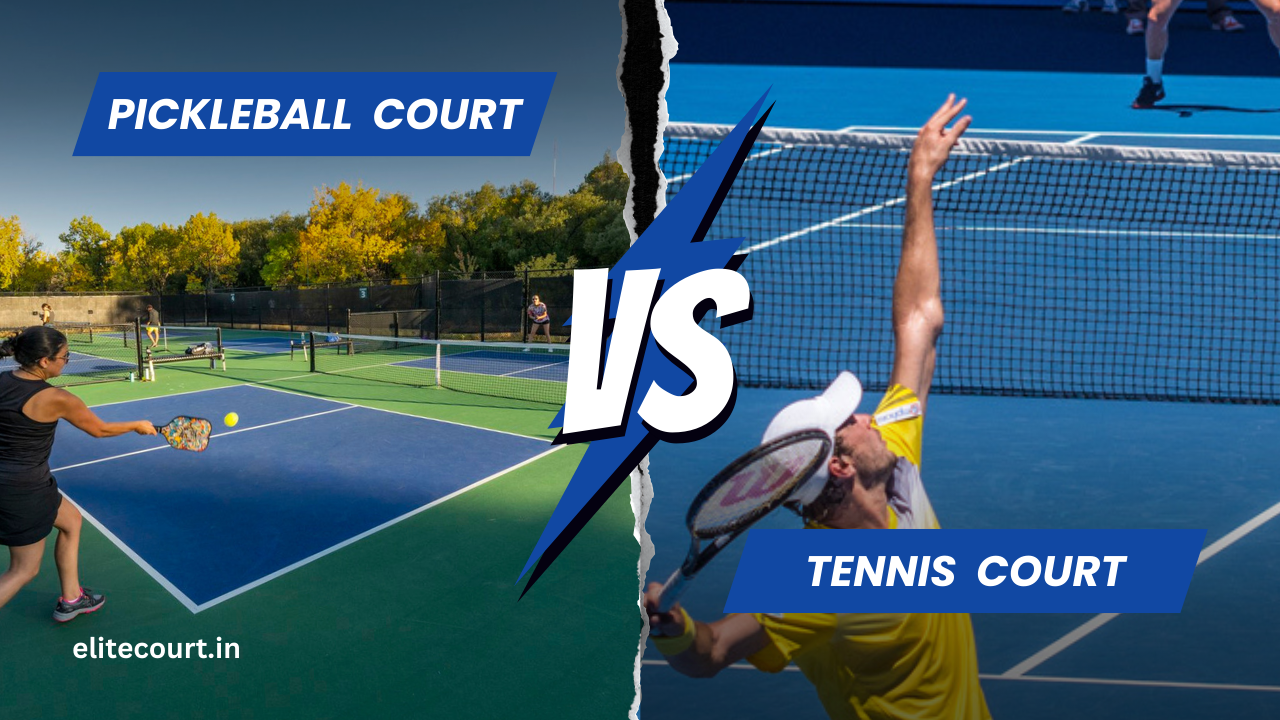
Table of Contents
The growing demand for sports like pickleball and tennis has created a surge in the construction of high-quality courts worldwide. While tennis courts have long been a staple in professional and recreational settings, the rapid rise of pickleball has introduced a new dynamic to sports facility design. The key to maximizing performance and durability lies in understanding the unique features of these courts. This article delves deep into the comparison between a pickleball court vs tennis court, offering insights into dimensions, surfaces, materials, and gameplay requirements. For Elitecourt, a leading provider of synthetic acrylic sports flooring, delivering tailored solutions for both pickleball and tennis courts is second nature. By the end of this guide, you’ll have a clear understanding of how these courts differ and why Elitecourt is the perfect partner for your project.
Introduction to Pickleball and Tennis
Pickleball and tennis have become two of the most loved racquet sports globally. Each sport brings unique challenges and excitement to players. While tennis has a long-standing history as a professional sport played on expansive courts, pickleball has emerged as a more compact and accessible game.
The rise of pickleball can be attributed to its appeal to all age groups, especially older adults, due to its smaller court size and less physically demanding gameplay. Tennis, on the other hand, continues to attract athletes of all levels, thanks to its high-speed, strategic nature. The contrasting characteristics of these sports emphasize the importance of designing courts specific to their needs, making the pickleball court vs tennis court debate all the more critical for builders and sports enthusiasts.
Pickleball Court vs Tennis Court: A Detailed Comparison
Dimensions and Size
- Pickleball Court Dimensions:
A pickleball court measures 20 feet wide by 44 feet long, significantly smaller than a tennis court. This size includes the full court, divided into two equal halves by a net. Unique to pickleball is the 7-foot “kitchen” or no-volley zone near the net, which limits aggressive play close to the net and encourages strategic rallies.
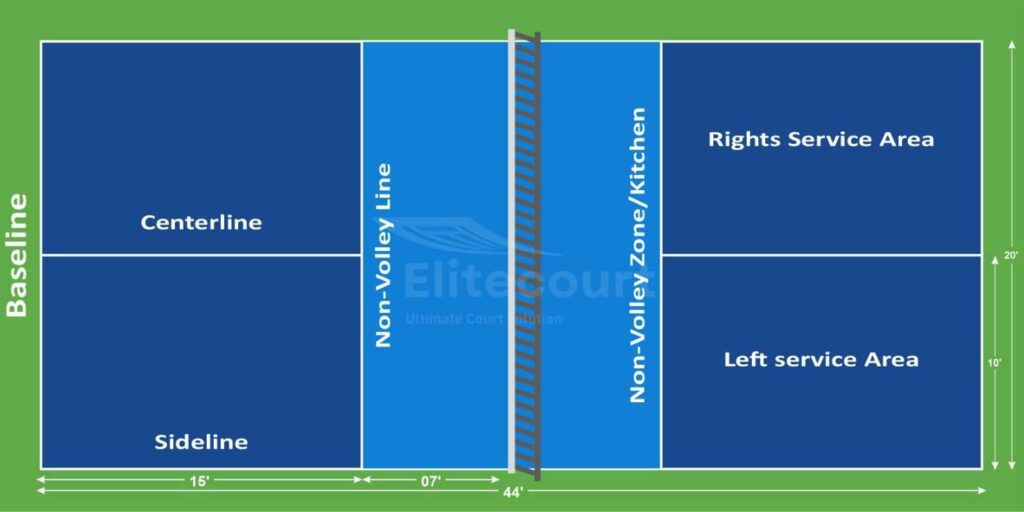
- Tennis Court Dimensions:
A standard tennis court measures 78 feet in length and 36 feet in width for doubles matches, with singles courts narrower at 27 feet. These larger dimensions accommodate the fast-paced movement and extended rallies typical of tennis. The extra width for doubles play ensures adequate space for two players on each side of the net.
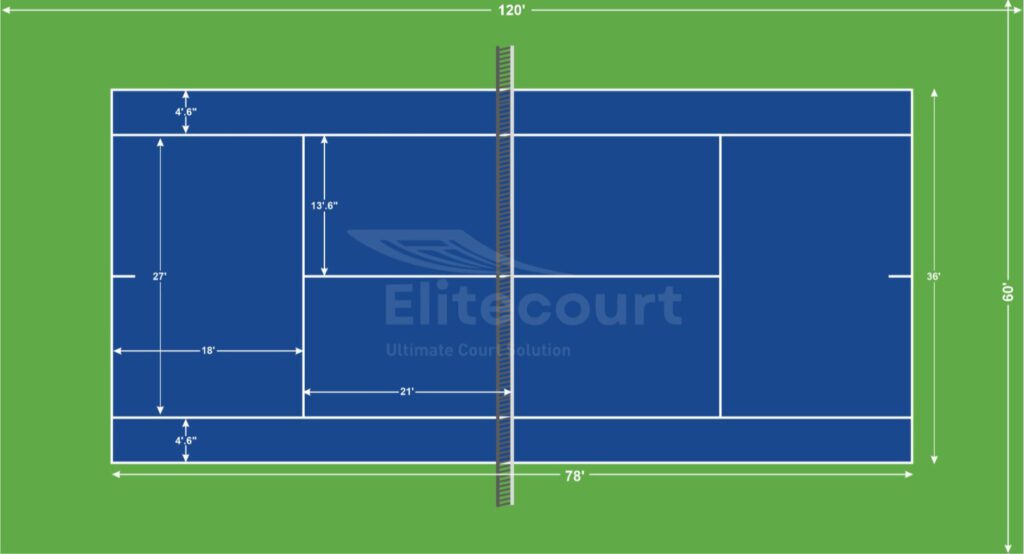
Comparing the pickleball court vs tennis court dimensions, it’s clear that pickleball offers a compact and efficient solution for smaller spaces, whereas tennis courts require expansive areas for play.
Court Design and Layout Differences in Pickleball Court vs Tennis Court
- Pickleball Court Layout:
The compact design of a pickleball court makes it ideal for converting smaller spaces, such as gymnasiums or community centers, into recreational facilities. A pickleball court includes clearly marked baselines, sidelines, and service areas. The no-volley zone, or “kitchen,” is a key feature, creating a unique style of play that emphasizes precision over power. - Tennis Court Layout:
A tennis court’s layout consists of baselines, sidelines, service boxes, and doubles alleys. The service boxes are positioned to create a challenging serving area, and the court is designed to support high-speed lateral movement. The layout’s expansive nature makes tennis an excellent choice for outdoor and larger indoor spaces.
When examining the layout, it becomes evident that the smaller, streamlined design of a pickleball court suits quick gameplay, while a tennis court caters to long rallies and strategic positioning.
Net Height and Specifications for Pickleball Court and Tennis Court
- Pickleball Net:
A pickleball net stands 36 inches high at the sidelines and dips slightly to 34 inches in the center. This lower net height suits the sport’s emphasis on controlled volleys and quick reflexes. The compact nature of the court and net height contributes to shorter, fast-paced rallies that require agility and sharp decision-making. - Tennis Net:
A tennis net is taller, measuring 42 inches at the posts and 36 inches at the center. The higher net accommodates the powerful serves and volleys typical of tennis, requiring players to generate greater ball height and spin.
When comparing net height in a pickleball court vs tennis court, the difference directly impacts gameplay dynamics. Pickleball’s lower net promotes close-range play, while tennis nets challenge players with higher-arching shots.
Surface Materials for Pickleball Court and Tennis Court
Elitecourt specializes in premium synthetic acrylic surfaces, an ideal choice for both pickleball and tennis courts. These surfaces are designed to enhance gameplay, reduce player fatigue, and withstand wear and tear from heavy usage.
- Pickleball Court Surface:
The smooth, non-slip surface of a pickleball court is crucial for safety and performance. Synthetic acrylic offers excellent ball bounce and grip, minimizing the risk of slips and falls. The material also provides shock absorption, making it more comfortable for players of all ages. - Tennis Court Surface:
Tennis courts require a durable surface capable of handling powerful strokes and intense lateral movements. Elitecourt’s synthetic acrylic materials provide consistent ball bounce, excellent traction, and a surface designed to reduce joint strain during play.
Whether you’re constructing a pickleball or tennis court, Elitecourt’s surfaces are engineered to support the unique demands of each sport. The difference in surface materials lies in their ability to cater to the gameplay style of each sport, ensuring the best possible experience for players.
Transform Your Sports Facility Today!
Contact us for high-quality synthetic sports flooring material and elevate your space!
Game Speed and Style
- Pickleball:
Pickleball is known for its dynamic and social gameplay. The smaller court size and low net height encourage fast-paced exchanges, where players rely on quick reflexes and precision. The no-volley zone further adds an element of strategy, making the game enjoyable and challenging. - Tennis:
Tennis offers a more expansive and intense gameplay experience. The larger court size supports longer rallies, powerful serves, and a wider variety of strokes. Tennis demands both endurance and technical skill, making it a favorite for athletes who enjoy high-energy sports.
When analyzing pickleball court vs tennis court, the distinction in game speed and style becomes apparent. Pickleball fosters a communal, quick-paced game, while tennis emphasizes power and endurance.
Durability and Weather Resistance
Elitecourt’s synthetic acrylic surfaces are built to endure the toughest conditions. Designed to be UV-resistant and weatherproof, these materials ensure the courts maintain their quality, even with prolonged exposure to sunlight or rain. For both pickleball and tennis courts, durability and weather resistance are crucial factors that determine the longevity of the investment.
- Pickleball Courts:
Given their smaller size, pickleball courts are often constructed in community centers, parks, and gyms. The versatility of Elitecourt’s acrylic surfaces ensures these courts perform equally well indoors and outdoors. - Tennis Courts:
Tennis courts face more extensive wear and tear due to their larger size and the high-speed nature of the game. Elitecourt’s surfaces are designed to withstand the constant impact of tennis balls and player movements, ensuring a smooth and even playing experience.
When it comes to pickleball court vs tennis court, the durability of Elitecourt’s surfaces ensures both courts remain safe, functional, and visually appealing for years to come.
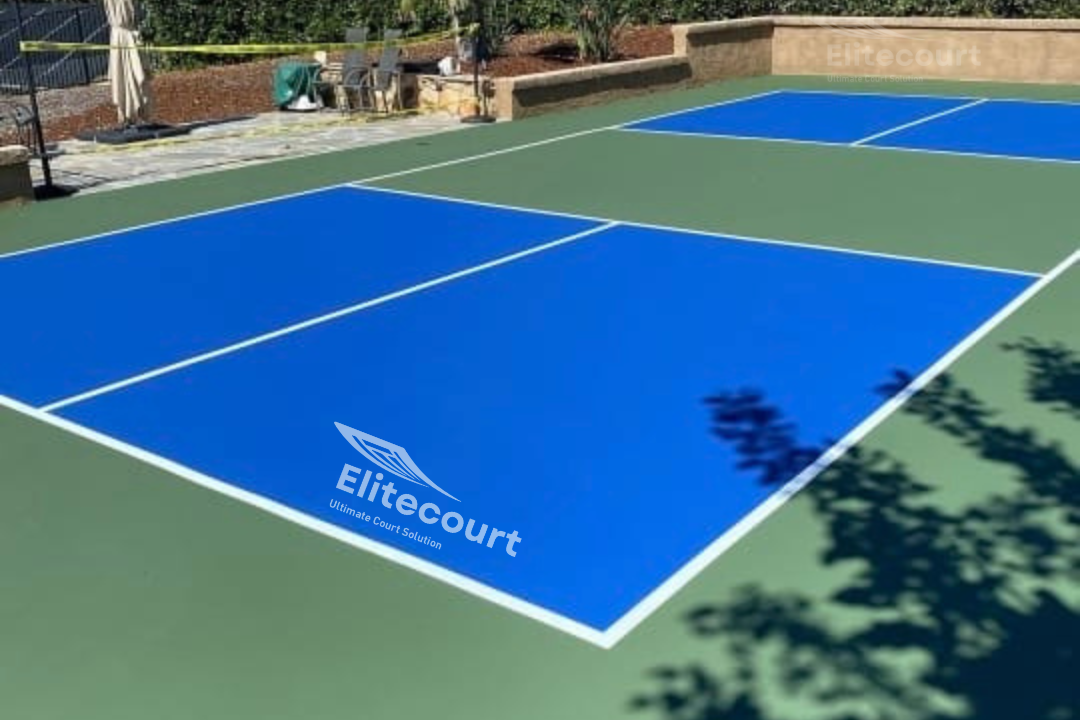
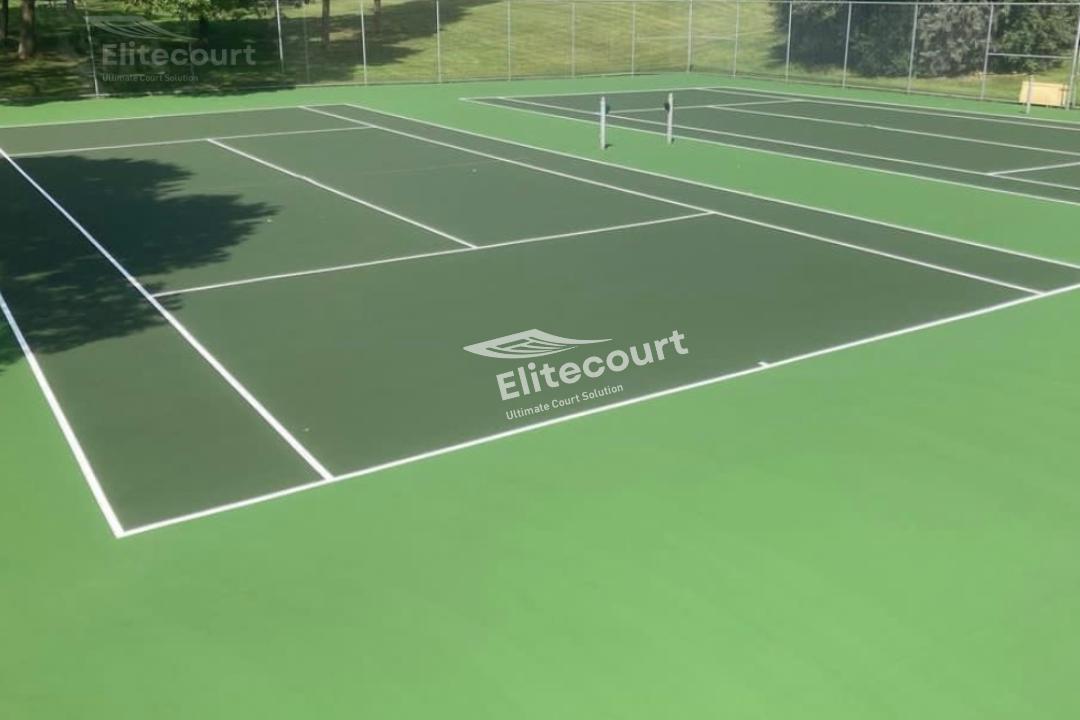
Why Choose Elitecourt Sports Flooring?
Elitecourt is a trusted leader in the sports flooring industry, offering tailored solutions for pickleball and tennis courts.
Here’s why Elitecourt stands out:
- High-Quality Materials: Elitecourt uses advanced synthetic acrylic materials designed for performance, durability, and safety.
- Customizable Solutions: Whether you need a pickleball court, tennis court, or a multi-purpose facility, Elitecourt provides tailored designs to meet your requirements.
- Eco-Friendly Practices: Elitecourt is committed to sustainability, using environmentally responsible materials and processes.
- Precision Installation: With years of expertise, Elitecourt ensures flawless installation, creating courts that meet professional standards.
- Low Maintenance: Elitecourt’s surfaces are built to last, minimizing the need for repairs or resurfacing.
When deciding between a pickleball court vs tennis court, Elitecourt’s innovative flooring solutions make all the difference in performance and longevity.
Transform Your Sports Facility Today!
Contact us for high-quality synthetic sports flooring material and elevate your space!
FAQs
A pickleball court is 20 feet wide by 44 feet long, while a tennis court is 36 feet wide and 78 feet long.
Yes, pickleball courts can easily be constructed indoors using Elitecourt’s synthetic acrylic surfaces.
Yes, while both benefit from synthetic acrylic, pickleball courts require smoother surfaces for better traction, while tennis courts demand higher durability for intense gameplay.
The no-volley zone, or “kitchen,” prevents players from dominating near the net, promoting strategic play and fairness.
Elitecourt specializes in premium synthetic acrylic surfaces, providing customized solutions for pickleball and tennis courts with durability and performance in mind.
Conclusion
The debate between a pickleball court vs tennis court isn’t about superiority—it’s about understanding the unique requirements of each sport. Whether you’re a recreational enthusiast or a professional, having the right court is essential for optimal performance. With Elitecourt’s expertise, you can create courts that meet the highest standards of quality and functionality. Contact Elitecourt today to transform your vision into reality!
Relevant Links: ITF Tennis Court Guidelines, USA Pickleball Official Rules

